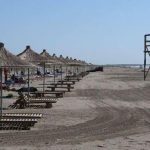TIRANA, July 1, 2022 – Three in four Albanian businesses want to hire workers from abroad due to labor shortages at home — as locals continue to emigrate due to low wages at home.
The figure is the highest among the six Western Balkan neighbors.
The Balkan Barometer 2022 in the survey with businesses in the region found that Albanian companies had the highest percentage of positive responses of plans hire foreign employees.
To the question, “How likely are you to hire people from abroad”, 74 percent of Albanian companies answered “yes,” while on average in the entire region, 47 percent of companies.
The entire region is experiencing labor shortages created by the emigration of young people. The survey of the Regional Cooperation Council’s 2022 Barometer hows that Albanian businesses in particular are interested in hiring foreigners.
The government has made it easier to import low-skilled, low-waged workers, and Prime Minister Edi Rama told one business owner during the electoral campaign last year to hire workers from Bangladesh.
But few have actually made it to Albania, where most of the demand is for very low-paid work that the locals won’t do.
The tendency to hire foreigners in Albania marked a strong increase in the 2022 barometer, since a year ago only 32 percent of Albanian companies were likely or very likely to hire foreigners.
This trend is increasing, due to the fact that Albania has the highest rates of emigration in relation to the population and most of those leaving are people that are young and with skills in demand in the EU.
On the other hand, the demand for employees in some sectors, such as tourism, construction and the textile industry is growing rapidly, due to the expansion of activity.
Companies in all activities are suffering from labor shortages. For most of them, finding employees has become the main concern, unlike a decade ago when the workforce was not a concern of this nature.
On the other hand, the countries of the region suffer from a high level of unemployment. In 2021, unemployment reached an average of 16 percent. Unemployment on the one hand and the demand for employees on the other point to a lack of vision to integrate the needs of the labor market with education, economic experts at Monitor magazine pointed out.
Most of the demand in Albania is for low skilled labor, while those unemployed are mostly skilled workers.
The World Bank has recommended Albania change its economic model from labor-intensive low skill work to technology and value-added work.










